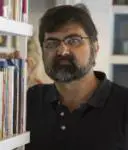Paradoxically, Venezuela’s past twenty years—during which it has earned its greatest oil revenues since the inception of this facet of its economy, beginning in 1922 with the Reventón, the “Big Bust” of the Los Barrosos well—have seen economic ruin, the country’s systematic destruction in all aspects of its existence, the most shocking increase in poverty, and an unstoppable diaspora. Like never before, this period saw certain evils enthroned that had already rendered dire consequences in the past, but that now surpassed all prior limits. Unbounded corruption, the revival of the militarist and autocratic pathology that has marked the country’s history, and exacerbated populism, among other factors, have turned Venezuela into a broken and failed state, governed by a heinous dictatorship, held hostage by all manner of mafias, and stuck at the intersection of the various complex and confused interests of international geopolitics. Even the words “Today, Venezuela…” now have the inevitable ring of a news report, surely poised to corroborate this tragic state of affairs.
Nonetheless, and in spite of all this, another Venezuela has existed and continues to exist. Or, better said, multiple Venezuelas have turned on Venezuela itself. One that resists in insile and another that, from a position of diaspora and exile, aspires to a less ruinous future in which hope and restored togetherness might intertwine in pursuit of reconstruction. This country—which is now both within and without, whose borders have now blurred—underwent an accelerated, complex, and contradictory process of transformation over the course of the twentieth century as a result of oil wealth, which converted the country into an important pole of attraction for foreign immigration from around the world. This condition as a site of immigration played a decisive role in various phases of the past century as a dynamizing factor in Venezuela’s social, demographic, economic, cultural, and political configuration. Immigrants arrived not just from Latin America, but from a good measure of the world in general. In the case of European immigrants, the Spanish, Italian, and Portuguese communities were the most numerous. Nonetheless, more than a few people from other regions of Europe also came in search of the “Land of Grace”—the title with which Columbus baptized the land that is now Venezuela on his third voyage, coming across the mouth of the Orinoco during his exploration of the coasts of the New World’s mainland. He wrote in his diary that he thought he had reached the Earthly Paradise.
This dossier evinces a phenomenon whose roots sink deep into the depths of Venezuela’s twentieth century—a unique case in that period of Latin America’s history. It testifies to the work of four writers, four women who came to Venezuela from non-Spanish-speaking parts of Europe, some as children, others as adults, married, divorced, with or without children, from the 1940s to the mid-1970s. Four women who, upon their arrival in America—referring to the continent, of course, in accordance with the term’s original meaning—had no knowledge whatsoever of the language that would take them in, and in whose writing they would forge their literary fates.
These women writers are, in order of arrival to their new country: Victoria de Stefano (Rimini, Italy, 1940; arrived in 1946), Margara Russoto (Palermo, Italy, 1946; arrived in 1958); Krina Ber (Poland, 1948; arrived in 1975), and Rowena Hill (Wales, United Kingdom, 1938; arrived in 1975). Among them are fiction writers, essayists, poets, university professors, and translators. In this dossier, they all offer a testament to their lived experience as immigrants and learners of a new language—not only a spoken language, but especially the language of their writing—and to their way of understanding and accepting this condition as authors of well established literary oeuvres, written in an unmaternal language that, at the same time, can only uncomfortably be referred to as a “stepmother” tongue.
Along with said testaments, the reader will find representative texts from the creative work of each of the aforementioned writers, including poetry, short fiction, and essay. Thanks to the outstanding translation work of Christina MacSweeney, Peter Kahn, Rowena Hill, Katie Brown, and Colaboratorio Ávila (a translation collective made up of Katie Brown, María García Pardo, Raquel Rivas Rojas, and Claudia Cavallin), as well as the participation of Fiona Mackintosh, we are also able to present these texts in English.
As a complement to the dossier, this issue also features a topical essay that addresses this subject matter in a wider context, entitled “Inheritance in the Mother Tongue,” translated by Sarah Booker, by university professor and poet Gina Saraceni, herself born in Caracas but likewise a daughter of Italian immigrants to Venezuela. She forms part of the new generation that has inherited the legacy of this admirable group of Venezuelan women writers who, when they arrived, didn’t know they would someday be Venezuelan and didn’t speak Spanish.
Translated by Arthur Dixon





